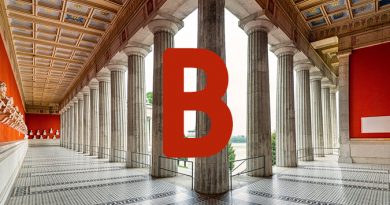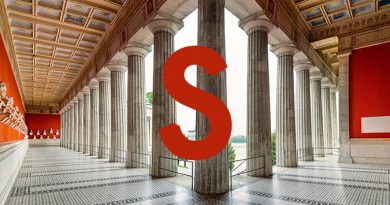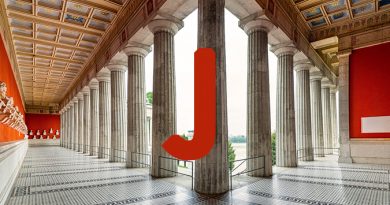D
Annie Charlotte Dalton Poet b. Dec. 9, 1865, Birkby (Huddersfield), Eng.; d. Jan. 12, 1938, Vancouver. Arrived in B.C. in 1904 from Huddersfield with husband Willie Dalton (married 1891). Her home was a meeting place for writers and readers. President, Vancouver Poetry Club; executive member, Lower Mainland Branch Canadian Authors’ Association and Dominion Council. Left partially deaf by a childhood illness, she was known as “The Poet Laureate of the Deaf” for her work on their behalf. Member, Order of the British Empire, the only woman poet honored at the time (1935). Biblio: The Marriage of Music; Flame and Adventure; Lilies and Leopards.
Taraknath Das Community spokesperson b. Bengal, India. A radical Bengali nationalist, he tried to gain community support for the Indian independent movement. Established Hindustani Association in Vancouver in 1907. In 1908, published Free Hindustan, the first South Asian publication in Canada, and one of the first in North America.
Josephine A. Dauphinee Special education pioneer, women’s activist b. Nov. 15, 1875, Liverpool, NS; d. Dec. 6, 1977, Vancouver. In 1908, when she arrived in New Westminster to work for her uncle Dr. G.E. Drew, she was a trained nurse and teacher. After training in Seattle, she taught at Central HS and was soon supervisor of special classes for mentally challenged children. Travelled across the US, observing teaching methods. By her retirement (1941), the number of special classes had grown to 27. A founder of the Vancouver Business and Professional Women’s Club (1922); president (1928-29). Helped establish Canadian Federation of Business and Professional Women’s Clubs in 1930; president, 1932-35.
John Davidson Botanist, conservationist b. Aug. 6, 1878, Aberdeen, Scotland; d. Feb. 10, 1970, Vancouver. Son of a cabinet maker, he was hired as a boy in U. of Aberdeen’s botany department. By 29, he was in charge of its botanical museum. In 1908, lack of formal education and class blocked his way to an assistant professorship. After a near-fatal flu/pneumonia attack (1909), advised to move to “more merciful” climate. Chose Vancouver, leaving April 1911. Hired by H.E. Young; soon named provincial botanist. Started gardens at Essondale (now Riverview) and UBC. “Botany John” joined UBC (1912); botany instructor and professor (1916-48). Founder, Vancouver Natural History Society (1918). Biblio: The Vancouver Natural History Society, 1918-1933 by Jim Peacock.
Dorothy Davies (b. July 26, 1920, Salt Lake City, UT – d. Mar. 27, 2002, Victoria, BC) – actress, director, writer. “Mary” on “The Carson Family” CBC radio serial 1947-65 and other radio and TV roles through 1984. Original member, Totem and Everyman Theatres, early professional troupes; directed and appeared with Edward Everett Horton, Charles Coburn, Theresa Wright, Uta Hagen, Craig Stevens et al. Staged Tobacco Road (1953) despite court injunction; acquitted after world-publicized trial. Best Director, 1955 Dominion Drama Festival, with UBC Alumni production, The Crucible. Notable stage roles incl. Julius Caesar, The Seagull, Oh Dad, Poor Dad …, (Playhouse), Agnes of God (Arts Club). Librettist, Jean Coulthard’s “The Pines of Emily Carr” (1969). First recipient, Jessie Richardson Award (lifetime achievement), Sam Payne Award (developing young talent); charter member, BC Entertainment Hall of Fame (“Starwalk”). (Drew Snider)
John Sullivan Deas Pioneer fish packer/canner, black entrepreneur b. South Carolina, probably Charleston, c. 1838; d. July 22, 1880, Portland, Ore. Trained as a tinsmith. Searched for gold in California. In 1862, moved to Victoria. Ran a business in Yale (1866-68) during the gold rush, then returned to Victoria. By 1871, began canning Fraser salmon for Captain Edward Stamp. On Stamp’s death, Deas continued canning, and in April 1873, preempted Deas Island and built his own cannery. He was the top canner until 1877. That same year, wife Fanny bought a rooming house in Portland, Ore. Deas sold out and joined her. Died at 42, leaving wife and seven children.
Fred Deeley Sr. Motorcycle dealer b. 1881, Bromsgrove, Eng.; d. May 9, 1970, Vancouver. After 10 years in business in England, he first visited B.C. in 1913, representing the Birmingham Small Arms, manufacturer of BSA motorcycles. Bought out BSA and opened Fred Deeley Ltd. (1914) in a 12′-wide store at 1075 Granville. In 1916 acquired Harley-Davidson franchise, becoming its second oldest dealership. By 1925 he owned a motorcycle shop, bicycle shop, and one of Canada’s larger car dealerships. Company included son Fred Jr. and grandson Trev (b. 1920) of Trev Deeley Motorcycles. Biography: Motorcycle Millionaire, by Trev Deeley.
“Gassy Jack” (John) Deighton Innkeeper b. 1830, Hull, Eng.; d. May 29, 1875, Gastown. At 14, went to sea, eventually arriving on the West Coast. First opened the Globe Saloon in New Westminster. When it failed, he canoed with his Native wife (m. 1863) to Burrard Inlet, Sept. 29, 1867, and opened a saloon. When his wife died, he married her niece Madeline (birth name Qua-hail-ya or Qwahalia, d. Aug. 10, 1948 at age 90, buried in the Squamish Reserve Cemetery). A year later, his son Richard Mason was born but died soon after Gassy Jack’s death at age of 45. Madeline was disinherited, and later married a Squamish man. Gassy Jack’s voluble personality is said to have prompted his nickname.
Arthur William Delamont Band leader b. Jan. 23, 1892, Hereford, Eng.; d. Sept. 11, 1982, Vancouver. As a youth, active in the Salvation Army Band in Moose Jaw, Sask., with father and four brothers. Survivor of 1914 sinking of Empress of Ireland in St. Lawrence. Came to Vancouver in 1922. Played trumpet at Pantages vaudeville theatre. For five decades, from January 1928, “Mr. D” conducted the Kitsilano Boys Band. Won first place in the Toronto Exposition (1931); performed at Chicago’s Century of Progress Exposition and NY World’s Fair (1939). Long-time PNE performers. “Raised the status of youth bands to an art.” Received Vancouver’s Good Citizen Award (1946).
Adam Urias dePencier Anglican priest b. Feb. 9, 1866, Burritts Rapids, Ont.; d. May 30, 1949, Vancouver. Ordained 1890. Obtained BA, Trinity U. (Toronto, 1895). After various posts in other provinces, accepted rectorship of St. Paul’s, Vancouver. Elected Bishop of New Westminster in June 1910. In 1911, U. of Trinity College awarded him DD (honoris causa). Chaplain in WWI, later Archbishop of New Westminster (1925-40) and Metropolitan. President, Anglican Theological College. On Nov. 12, 1918, received Order of the British Empire from King George V. Original member of UBC senate. LL.D (UBC, 1940).
Allard de Ridder VSO conductor b. 1887, Dordrecht, Holland; d. May 1966, Vancouver. Received music education in Holland and Cologne Conservatory. Guest conductor in Arnhem, The Hague and Amsterdam. Conductor of Amsterdam’s National Opera and Boston Symphony Orchestra. First VSO conductor (1930). Put up his $3,000 life savings to cover musician’s wages for first concert. Left California to become a citizen of Vancouver. In 1941, joined Hart House String Quartet (Toronto). Taught at Royal Conservatory of Music before founding Ottawa Philharmonic Orchestra in 1944. Retired in Vancouver in 1951.
Alexander Campbell Des Brisay Chief justice b. 1888, Winnipeg, Man.; d. Nov. 30, 1963, Vancouver. Elected president, Vancouver Bar Association (1941); treasurer, B.C. Law Society (1953-55); chief justice of B.C. Court of Appeal (1958). Head of one-man royal commission on workmen’s compensation (1962). When he died, he had produced 6,000 pages of transcripts for the as-yet unfinished enquiry. His wife, Ella Helen, died the following morning (Dec. 1, 1963, Vancouver) of a heart attack. LL.D (UBC, 1959).
Dett (Claude P.) Dettloff Photographer b. 1899, Chippewa Falls, Wisc.; d. July 18, 1978, Vancouver. Started career with Minneapolis Journal in 1923. Worked 11 years with Winnipeg Tribune. Joined Vancouver Daily Province (1936), becoming chief photographer. Wait for Me, Daddy, his memorable WWII photo of a boy running after his marching dad, was shot Oct. 1, 1940 as the New Westminster brigade went overseas. Photo appeared Oct. 2, 1940 in Vancouver Daily Province. Named one of 10 best pictures of the 1940s by Life Magazine. The unposed shot was taken at 9 metres with a 3 1/4 by 4 1/4 Speed Graphic and a 13.5 C.M. Zeiss lens. Exposure was 1/200 of a second at F.8, using Agfa film.
Harry (Henry Torkington) Devine Photographer b. July 28, 1865, Manchester, Eng.; d. Dec. 17, 1938, Vancouver. His father, John Devine, was the first city auditor. Harry started his career in Brandon, Man., (1884) in partnership with J.A. Brock (1885). Moved to Vancouver (1886). The work of Brock & Co. has been called the “visual legends” of Vancouver. After the Great Fire of 1886, he photographed the first city council and first police department in front of a tent. His partnership with Brock ended in 1887. He worked again as a photographer from 1895-1897 when he ended his photography career.
Dick Diespecker, radio announcer, producer, writer, poet and newspaper columnist, was born Richard Alan Diespecker March 1, 1907 in Adstock, Buckinghamshire, Eng. He came to Vancouver in 1927, the same year he began his newspaper career with The Vancouver Star. In 1936 he joined CJOR and began to write radio dramas. In 1940 he joined an artillery unit, later became a radio liaison officer. His Prayer for Victory, written in a Montreal hotel room in 1942, was aired on radio networks throughout the western world. His first book of poems, Two Furious Oceans, was published in 1944. In 1947 he won the Beaver Award for “distinguished service to Canadian radio.” The next year he won the Columbus Award for the three-part radio documentary Destination Palestine. Diespecker wrote more than 400 radio plays for CJOR, CBC, BBC and the South African Broadcasting Corp. He was a columnist with the Vancouver Star, the News-Herald and the Victoria Colonist, and wrote a popular column on radio for the Province. His 1950 novel Elizabeth told of the life of a pioneer woman.
Another novel, Rebound, appeared in 1953. See an interesting description of that Vancouver-based novel here. In 1958 Diespecker moved to San Francisco to join a public relations firm, and in 1964 became an American citizen. He died, aged 65, on February 11, 1973 in San Francisco.
Ira Dilworth Scholar, broadcaster b. March 25, 1894, High Bluff, Man.; d. Nov. 23, 1962, Vancouver. Came to Okanagan as a boy. From 1915-34, taught English at Victoria HS; principal (1926). A poetry expert, he was a popular UBC associate professor of English (1934-38). From 1938-40, directed Bach Choir. First president, Vancouver Community Arts Council (1945), the first of its kind in North America. From 1938 onward, rose in CBC ranks to director of all CBC English networks (1956). A special friend of Emily Carr, he encouraged her to write books. LL.D (UBC, 1948).
William Carey Ditmars First car buyer b. Nov. 12, 1865, St. Catherines, Ont.; d. Dec. 7, 1960, Vancouver. Arrived in Vancouver from Toronto early in 1891; worked as accountant for John Doty Engine. Moved back to Toronto (1894-97), then joined a new Vancouver bridge building firm, Armstrong & Morrison. In 1903, became a full partner, building Granville, Cambie and Fraser street bridges. Laid substructure for Lions Gate Bridge (1937). President, Vancouver Granite, supplying granite facing for bridge piers. In February 1899, bought a tiller-steered Stanley Steamer for partner W.H. Armstrong, the first car in Canada. Cost f.o.b. Vancouver was approx. $1,000. Received Vancouver’s Good Citizen Award (1928).
Joseph Dixon Carpenter b. Oct. 2, 1860, Cumberland County, Eng.; d. Sept. 15, 1926, Vancouver. Opened his first shop in a basement on Seymour with partner Richard Lyte. In 1894, with new partner George Murray, established Dixon and Murray, a pioneer West End fixture store and manufacturer. Fire destroyed the building in 1907; in 1908, the firm relocated to 1052 Eveleigh, a three-story building torn down in the early 1960s, eventually moving to 925 Odlin Rd in Richmond. They equipped most of Vancouver’s palatial homes. President of Carpenter’s Union (1889).
Charles (Carl Gottfried) Doering Brewer b. Jan. 10, 1856, Leipzig, Germany; d. April 15, 1927, Vancouver. Educated in Germany as a machinist. Established Doering & Marstrand Brewery in Mt. Pleasant, later sold to Vancouver Breweries. Alderman, Ward 6 (1890-91). His Mt. Pleasant home was the first built south of False Creek after the 1886 Great Fire. His saloon, Stag & Pheasant, was on Water St. Later years spent with second wife, Mary Ann Joan Gerrie Reid (b. Sept. 8, 1860, Scotland; d. Sept. 1, 1940, Duncan, B.C.), a noted horsewoman, at their Hat Creek cattle ranch in the Cariboo.
Robert Dollar Steamship lines president b. 1844, Falkirk, Scotland; d. May 16, 1932, San Rafael, Calif. Came to Eastern Canada at 14; by 19, was an experienced lumberjack. Moved to California (1888) and bought Newsboy, the first in a shipping empire of over 100 vessels. In 1902, made first China trip. In 1912, established Canadian Robert Dollar Co. in Vancouver to run the fleet of Dollar Steamship Line of California. Timber stands, bought from the B.C. government, supplied his sawmill on Burrard Inlet. The Dollar flag, a white dollar sign on a red background, was known worldwide. “Pacific’s Grand Old Man.”
Charles S. Douglas Mayor of Vancouver, 1909 See Mayors of Vancouver.
Violet Alice Dryvynsyde Educator, author b. Nov. 4, 1899, Port Fairy, Australia; d. Oct. 29, 1969, Vancouver. Came to Vancouver with family in 1930. After husband’s death in 1940, founded the private Athlone School for Boys with six students. By 1969, the school at 49th and Arbutus had 230 students. In 1952, her novel Provoke the Silent Dust won third prize in a literary competition sponsored by the Australian government. The novel’s plot involved a pioneering girl who went to Australia determined to avenge slights on her character by English society by raising a strong family.
Wilson Duff Anthropologist b. March 23, 1925, Vancouver; d. Aug. 8, 1976, Vancouver. His entire career centered on the study of Northwest Coast Indians. Educated at UBC (BA, 1949), U. of Washington (MA, 1951). Curator of anthropology at provincial museum (1950-65). Moved to Vancouver to teach and research at UBC department of anthropology and sociology. Founding member of the B.C. Museum Association. Helped preserve the last remaining totem poles at Kitwancool and villages in Queen Charlotte Islands in the 1950s. Wrote The Indian History of British Columbia and Arts of the Raven: Masterworks by the Northwest Coast Indians. Biblio: The World is as Sharp as a Knife, An Anthology in Honor of Wilson Duff, edited by Donald N. Abbott.
Charles Trott Dunbar Pioneer real estate developer b. 1861, Rhode Island; d. April 15, 1927, Vancouver. A general agent for Union Land Co. of St. Paul, Minn., he arrived in Vancouver in 1888. Promoted development of Dunbar Heights, “selling like hotcakes” in 1906. As a marketing device, he gave away 1907 calendars. In 1909, planned a logging railway to his timber limits on the Mamquam River near Squamish. On Feb. 3, 1910, won approval of B.C. legislature to incorporate The Port Moody, Indian Arm & Northern Railway. By 1911, 100 men were employed grading the CPR line from Port Moody to the north side of Burrard Inlet opposite Barnet, along his proposed route.
Nora M. Duncan Poet b. c. 1883, Vermont, Clarina, County Limerick, Ire.; d. May 31, 1946, aboard a CPR train near Moose Jaw, Sask. Came to London, Ont. as child with father, the Reverend Preceptor Alfred Dann. Educated at Bishop Strachan School, Toronto. After marriage to Wallace Craig Duncan at London, Ont. in June 1908, she spent a number of years on the prairies before coming to Vancouver. Wrote two books of poems Down to the Sea and Rainbow Reveries. Organizer of the radio program The Lyric West.
Bill (Wilfred John) Duthie Bookseller b. April 8, 1920, Weston, Ont.; d. April 7, 1984, Vancouver. Came to Vancouver in 1952 as the first regional book representative on the West Coast. Opened Duthie Books in 1957. An innovator, he dedicated an entire floor to paperback books, a marketing move unprecedented at the time. He was especially encouraging to emerging Canadian writers. The Bill Duthie Memorial Lecture is delivered annually at the Vancouver International Writers Festival.




